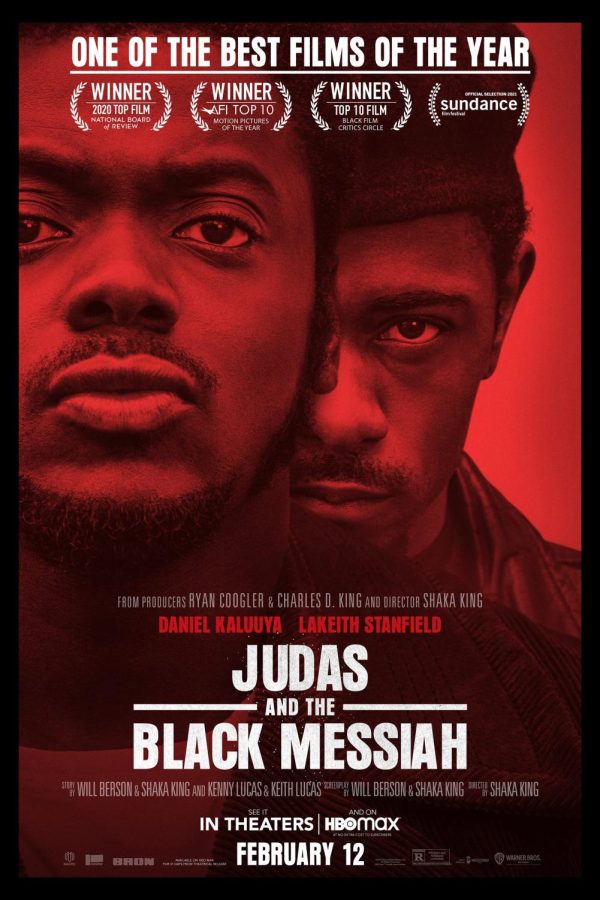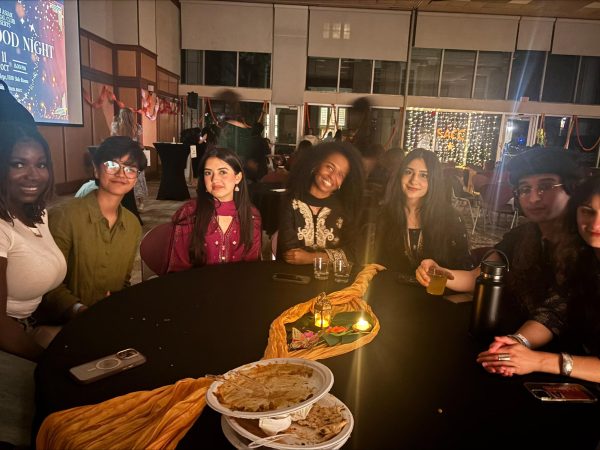I Am a Revolutionary – “Judas and the Black Messiah”
This past week, I went to the screening of “Judas and the Black Messiah” hosted by the Africana Studies department for their Black Power Film series. I remember hearing about the movie during the 2021 Oscars, although I never got around to it until now.
To say this movie was amazing would be an understatement. It follows Bill O’Neal (LaKeith Stanfield), who works undercover for the FBI to investigate Fred Hampton (Daniel Kaluuya), Chairman of the Illinois chapter of the Black Panther Party. It then shows how O’Neal begins to get more connected to the party and its movement before ultimately turning on them.
Kaluuya in particular, in his role as Chairman Hampton, was the biggest highlight of the movie for me. His performance, especially during his speech after leaving prison, is extremely powerful and it feels like his revolutionary energy to unite people can come right through the screen to the viewer as if he is right there.
Every word he says is captivating, and his inflection feels shockingly close to that of the real Fred Hampton. The line “You can murder a liberator, but you can’t murder a revolution! You can murder a revolutionary, but you can’t murder a revolution,” from the previously mentioned speech has been ringing through my head since seeing the movie.
Stanfield’s performance as Bill O’Neal was also very powerful. It was interesting to see his conflicts over his actual growing support for the party and the fact that he is getting paid by the FBI and kept out of prison to betray the party.
The movie’s music, and at some points the lack thereof, also really stuck out to me while watching it. It was how I first heard of the movie, specifically its credits song, “Fight for You” by H.E.R., which truly feels like an anthem for Hampton. The use of 1960s music from Black artists really helps to put the viewer in the era of the film and reflects on the Black Panthers movement.
There were also significant moments in the movie which felt like they carried a heavy silence, which was ultimately used to great effect during the final scene where Hampton is killed, which begins silent and then breaks through with a large amount of gunfire.
“Judas and the Black Messiah” was an incredibly powerful experience that is truly eye-opening, especially for those who do not know much about the Black Panther Party. While I had a general idea of the party’s history, there were things that the party did that I did not know about, such as the social programs the group supported.
Africana Studies will host three more showings for their Black Power Film series, “The Black Power Mixtape 1967-1975,” “Summer of Soul,” and “Get Out,” all on Thursdays in October at 6:30 p.m. in Althouse 106.








